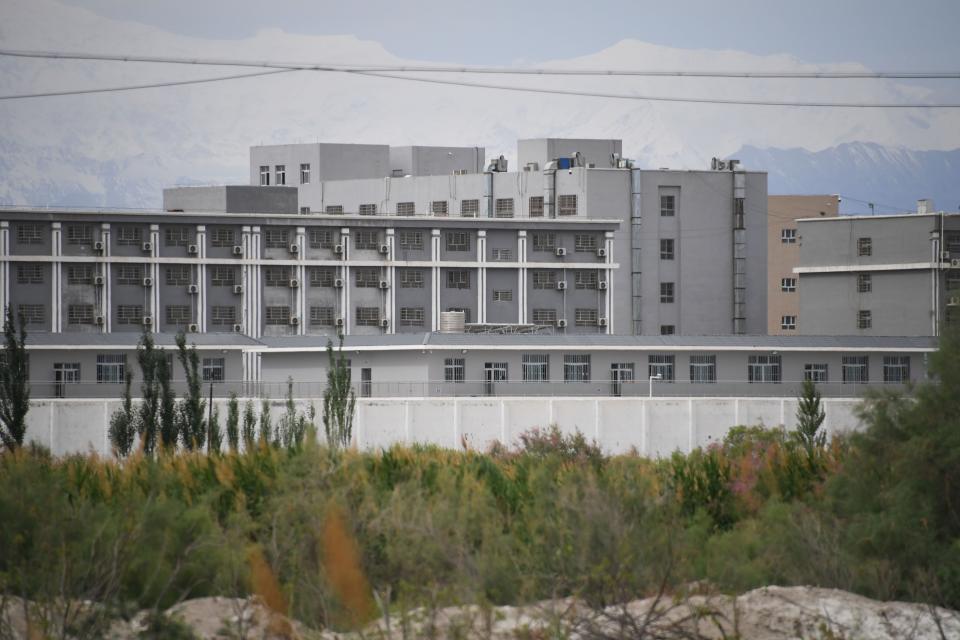Chinese figures show steep rise in number of people given lengthy prison sentences in Xinjiang since 2014

Chinese government figures show a steep rise in the number of people who are reportedly being awarded lengthy prison sentences in Xinjiang since 2014 when Beijing began its crackdown against the Uyghur Muslims in the region.
According to a report by CNN, long prison sentences were awarded as a part of a separate programme that ran alongside the system of detention. Under the programme, lengthy imprisonments were awarded for alleged crimes like terrorism, separatism, and inciting ethnic hatred.
However, the records do not reveal the crimes committed by those imprisoned, reported CNN. Neither do they reveal the ethnic and religious profile of those who have been convicted. The network further categorically states that they have not been able to independently verify if the programme is still ongoing.
China has been widely condemned for its detention of Uyghur Muslims in what a UN panel has called a “massive internment camp that is shrouded in secrecy”. More than 1 million Uyghurs are reported to have been placed in camps in Xinjiang province, where former detainees have accused guards and officials of systematic rape and sexual violence.
The country has repeatedly defended its network of facilities in the province, calling them voluntary “vocational training centres” while at the same time framing them as a necessary part of counter-terrorism efforts.
According to CNN’s report, about 21,000 people were awarded jail terms in Xinjiang in 2014. But by 2018, the numbers multiplied six times to a whopping 133,200, reported the CNN. Since 2018, China has not released the imprisonment data.
The report adds that while in 2016, only 27 per cent of those arrested were awarded a sentence of more than five years, the figure went up to 87 per cent by 2017.
Accusing China of manipulating figures, Human Rights Watch China researcher Maya Wang said, “I think there has been a practice of (Chinese government officials) hiding and manipulating figures, especially in more politicized environments,” she said. “It’s kind of clear what’s going on.”
Earlier in February, Human Rights Watch also published a similar report according to which, there has been a surge in the “baseless imprisonments” in Xinjiang with long prison sentences for Uyghurs and other Muslims in the region.
The human rights body analysed nearly 60 cases of prosecutions between 2016 and 2018 to conclude that “many people have been convicted and imprisoned without committing a genuine offence”.
While in 2019, Xinjiang Uyghur Autonomous Region Chairman Shohrat Zakir said that everyone held in these camps have now “graduated”, satellite images published in a report by the Australian Strategic Policy Institute (ASPI) showed an expansion of prison infrastructure.
The report, published in 2020, also suggested that several existing facilities have expanded, about half of which are high-security facilities.
According to the think tank, this may suggest a “shift in usage from lower-security, ‘re-education centres’ towards higher-security prison-style facilities”.
A separate report by the Newlines Institute for Strategy and Policy, think tank in Washington DC, examined the key development in the region from May 2013 and concluded that nearly one to two million people were detained in the internment camps built in the Xinjiang region with over 380 detention sites that were either newly built or significantly expanded since 2017.
Read More
‘Factually baseless’: China rejects Biden’s criticism of Apple Daily closure
Taiwan sees ‘record’ Chinese incursion into its air space
Jack Ma: Alibaba co-founder says billionaire is ‘lying low’ and has taken up painting

 Yahoo Finance
Yahoo Finance 